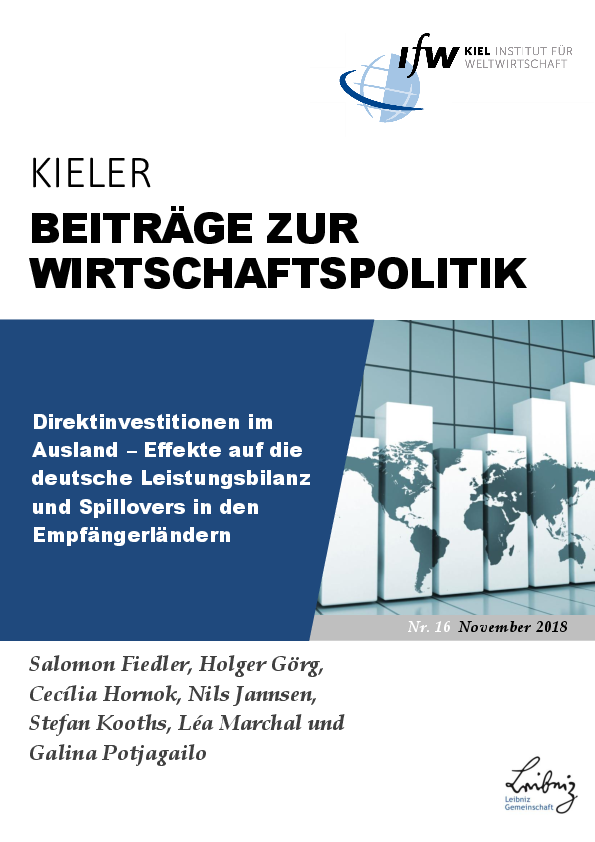Policy Article
Foreign direct investment: implications for the German current account and spillover effects in receiving economies (in German)
Authors
Publication Date
Related Topics
Germany
Foreign Direct Investments
International Trade
The German current account surplus in relation to GDP has reached record high levels in historical and international comparison over the last years. From an accounting perspective, the trade and the primary income surpluses, and here net income from foreign direct investment (FDI), contributed strongly to this development. Against this backdrop, first, we show that yield differentials on German assets, FDI in particular, against most receiving economies, switched from negative to positive values simultaneously with the increase in the net primary income at the beginning of the 2000s. This suggests that German companies respond to yield incentives when allocating capital abroad, although not all dimensions of the return on FDI can be identified by macroeconomic analysis. Projections indicate that the relevance of German net primary income is expected to increase slightly over the medium term. In a second part, a feasibility study investigates the preconditions for quantifying the causal effects from the presence of German firms abroad. An analysis of German firms operating in France shows that the presence of German-owned firms in France has a positive effect on the labor productivity and export and import activity of domestically owned French firms. This spillover effect from German affiliates seems to be stronger than the estimated average effect from all foreign direct investments in France. Furthermore, a literature review evaluates the existing literature on the economic effects of FDI, assessing earlier findings on other countries and the extent to which they are applicable to Germany.









